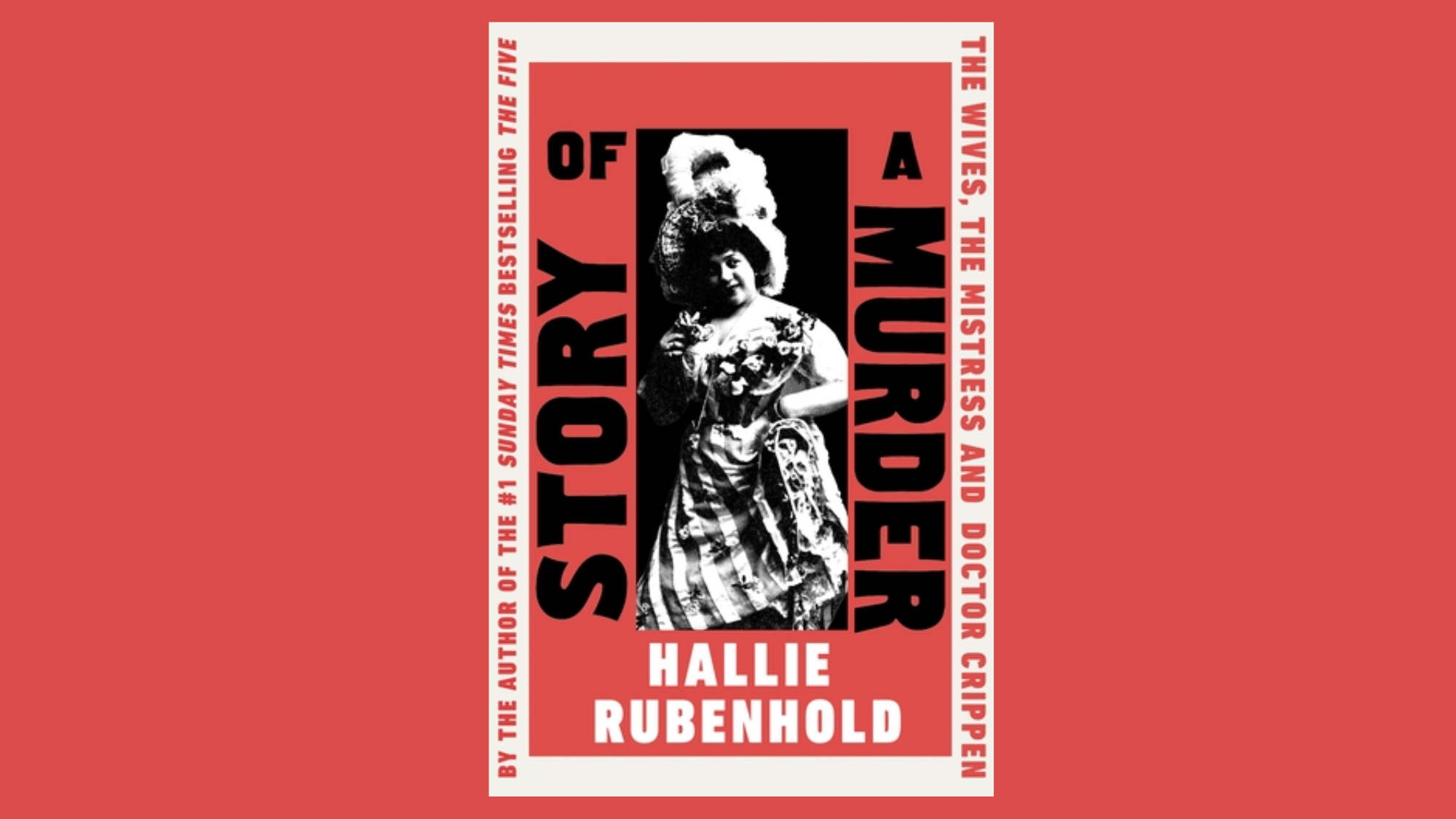The Story of Murder: a 'thoughtful' fictional retelling of a true crime story
Hallie Rubenhold novel delivers belated justice to the victim of a 1910 London murder

A free daily email with the biggest news stories of the day – and the best features from TheWeek.com
You are now subscribed
Your newsletter sign-up was successful
One night in 1910, an American quack doctor murdered his wife Belle Elmore, dismembered her body and buried it in the cellar of their north London home. He and his lover, Ethel Le Neve, then tried to flee to Canada, only to be foiled by a message sent from their ship via the new-fangled wireless telegraph; after a sensational trial, the doctor, Hawley Crippen, was hanged while Ethel walked free.
The story is, of course, a familiar one; yet in her new book, Hallie Rubenhold makes it exciting all the same, said Dominic Sandbrook in The Times. Rather than put Crippen centre stage, she focuses on his victim and his suspected accomplice: Belle, often depicted as blowsy and shrewish, is treated with gentle compassion, while Ethel is compellingly mysterious. The author also brilliantly evokes their milieu – the music halls in which Belle sang, the boom in homoeopathy that Crippen exploited, and the thrilling novelty of instant communications. It's a "thoughtful, humane and gripping" book.
Rubenhold has delivered belated justice for Belle, said Jennifer Wright in The New York Times. Contemporary newspapers presented Crippen as a meek man driven to murder by a grand passion and an impossible wife. In fact, he ruthlessly exploited vulnerable people with his snake-oil cures; he forced his first wife, Charlotte, into multiple abortions and may have killed her too. He would almost certainly have got away with Belle's murder but for her "fascinating" circle of bohemian friends – including a tightrope walker and a circus rider – and their determination to establish the truth.
The Week
Escape your echo chamber. Get the facts behind the news, plus analysis from multiple perspectives.

Sign up for The Week's Free Newsletters
From our morning news briefing to a weekly Good News Newsletter, get the best of The Week delivered directly to your inbox.
From our morning news briefing to a weekly Good News Newsletter, get the best of The Week delivered directly to your inbox.
This is a story of restlessness, aspiration and thwarted ambition, said Lucy Lethbridge in the Times Literary Supplement. The characters are perpetually on the brink of ruin or riches, changing their names at the drop of a hat: Crippen's aliases included Cuppen, Franckel and Robinson. He emerges as a man "shaped by contradictions" – capable of small kindnesses and great charm, but also coldly calculating, with an eye for female vulnerability.
The book takes in a "dizzying" range of locations, said Nigel Andrew in the Literary Review, and the descriptions of these places rather clog the narrative. Where it really pays dividends is in its account of Belle and her music-hall career; but Ethel, too, springs to life as a woman whose ruthlessness matched her lover's. Rubenhold reminds us of the "hideous" reality of murder and its ripple effect on family and friends, while providing the murdered woman with a fitting and "deeply sympathetic" memorial.
A free daily email with the biggest news stories of the day – and the best features from TheWeek.com
-
 Why is the Trump administration talking about ‘Western civilization’?
Why is the Trump administration talking about ‘Western civilization’?Talking Points Rubio says Europe, US bonded by religion and ancestry
-
 Quentin Deranque: a student’s death energizes the French far right
Quentin Deranque: a student’s death energizes the French far rightIN THE SPOTLIGHT Reactions to the violent killing of an ultraconservative activist offer a glimpse at the culture wars roiling France ahead of next year’s elections
-
 Secured vs. unsecured loans: how do they differ and which is better?
Secured vs. unsecured loans: how do they differ and which is better?the explainer They are distinguished by the level of risk and the inclusion of collateral
-
 James Van Der Beek obituary: fresh-faced Dawson’s Creek star
James Van Der Beek obituary: fresh-faced Dawson’s Creek starIn The Spotlight Van Der Beek fronted one of the most successful teen dramas of the 90s – but his Dawson fame proved a double-edged sword
-
 Properties of the week: pretty thatched cottages
Properties of the week: pretty thatched cottagesThe Week Recommends Featuring homes in West Sussex, Dorset and Suffolk
-
 Kia EV4: a ‘terrifically comfy’ electric car
Kia EV4: a ‘terrifically comfy’ electric carThe Week Recommends The family-friendly vehicle has ‘plush seats’ and generous space
-
 Bonfire of the Murdochs: an ‘utterly gripping’ book
Bonfire of the Murdochs: an ‘utterly gripping’ bookThe Week Recommends Gabriel Sherman examines Rupert Murdoch’s ‘war of succession’ over his media empire
-
 Gwen John: Strange Beauties – a ‘superb’ retrospective
Gwen John: Strange Beauties – a ‘superb’ retrospectiveThe Week Recommends ‘Daunting’ show at the National Museum Cardiff plunges viewers into the Welsh artist’s ‘spiritual, austere existence’
-
 Bad Bunny’s Super Bowl: A win for unity
Bad Bunny’s Super Bowl: A win for unityFeature The global superstar's halftime show was a celebration for everyone to enjoy
-
 Book reviews: ‘Bonfire of the Murdochs’ and ‘The Typewriter and the Guillotine’
Book reviews: ‘Bonfire of the Murdochs’ and ‘The Typewriter and the Guillotine’Feature New insights into the Murdoch family’s turmoil and a renowned journalist’s time in pre-World War II Paris
-
 6 exquisite homes with vast acreage
6 exquisite homes with vast acreageFeature Featuring an off-the-grid contemporary home in New Mexico and lakefront farmhouse in Massachusetts